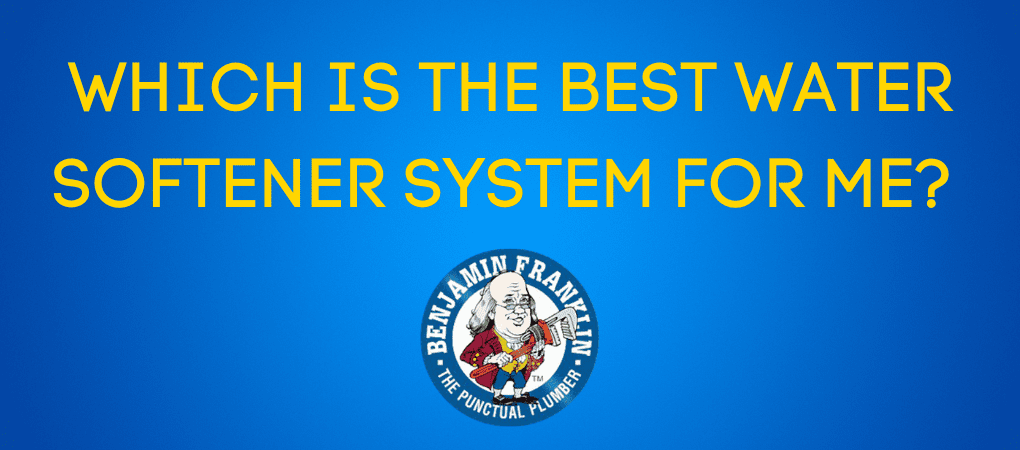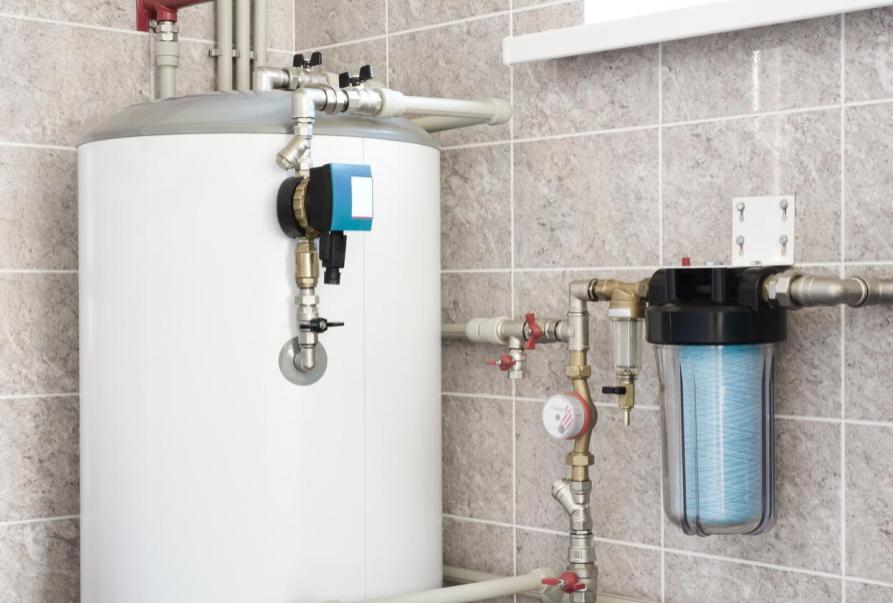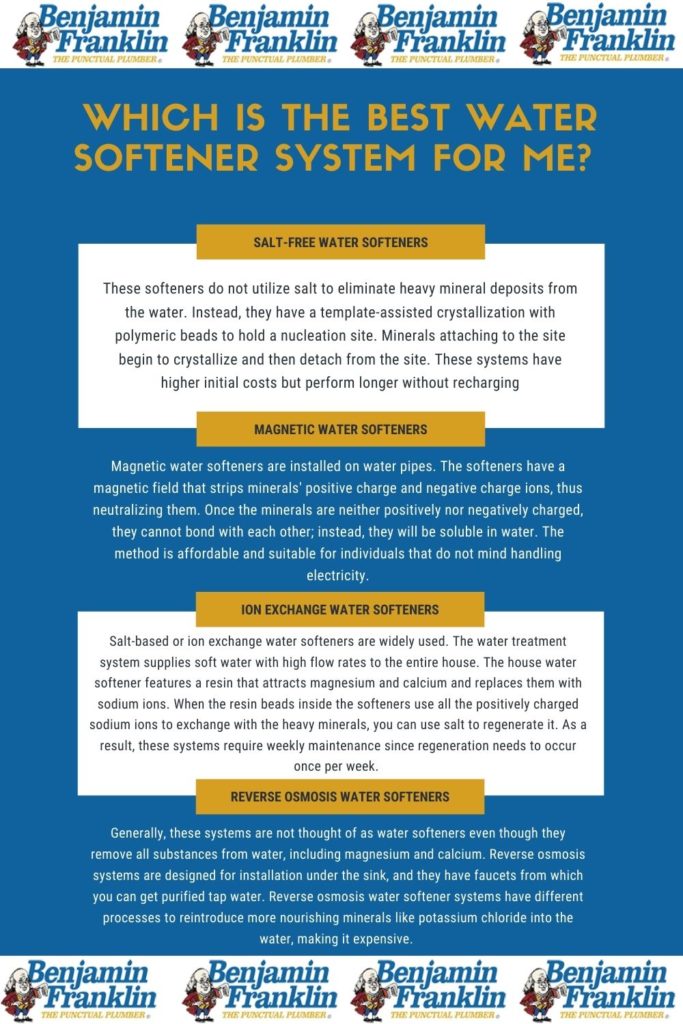
07 Jan Which is the Best Water Softener System for me? (Tyler)
You may have heard people around you use the terms hard and soft water when talking about a Water Softener System. However, if you do not know what they mean, you probably wonder what makes water hard or soft and if there are pros and cons for each type.
Although water is generally clear, it consists of mineral and chemical concentrations which determine its hardness. The article has highlighted the differences between soft and hard water, the benefits of water softener systems, and the different types of softeners.
| Contents |
|---|
What are the Pros of Water Softener Systems?
The amount of magnesium and calcium in water determines its hardness. Hard water has all the minerals it has collected before getting to your tap, and the level of minerals and hardness varies.
It is impossible to differentiate between hard and soft water by looking. Therefore, you can only know the difference by feeling the water or observing what the water does on pipes, water heaters, dishes, or machines.
Indicators of hard water are:
- Due to calcium carbonate deposits, there are minimal stains and spots on your clothes, silverware, and glasses.
- You feel a film on your hands after washing with soap. The soap reacts with calcium to form scum, leaving the film on your hands.
- Mineral deposits clog pipes reducing water pressure.
Hard water has some benefits, including:
- The minerals in hard water such as calcium, iron, and magnesium are essential in the body. They help maintain the health of your cardiovascular system.
- The majority of the people also believe hard water tastes better because of the minerals.
- Although it is beneficial, hard water also has some disadvantages that prompt individuals to invest in water softeners. These cons include:
- The minerals in hard water cause scale buildup in pipes and plumbing systems, leading to costly repairs.
- It can cause dry hair and skin. In addition, frequently washing hair with hard water will cause an itchy scalp.
- Hard water minerals alter the skin’s pH balance weakening its ability to bar harmful bacteria and infections.
Water softening is a technique that helps minimize mineral concentrations in your water and improve drinking. Softened water has higher sodium or salt concentrations than magnesium and calcium.
You will know your water is softened if you see the following:
- The water easily lathers with soap when washing hands, clothes, and dishes
- Clothes do not have mineral stains and are much cleaner
- Adequate water pressure hence an excellent water flow
- Some people may feel a slight sodium taste in water
What Size Water Softener System Do I Need?
Hard water has several adverse effects around the home, from plumbing issues to the ineffective operation of washing machines and dishwashers. Installing a water softener system will help reduce these issues. However, most homeowners find it hard to identify the right size of water softener system for their home s water.
To determine the correct size, you need to multiply the number of individuals in your household by the water gallons they use every day. According to professionals, the average daily water use per person is 80 gallons. Then multiply this number by your water’s grains of hardness to know the number of grains per gallon you need to eliminate each day. You can then purchase a water softener that can handle that water supply load.
What Options are There for Water Softener Systems?
There is a myriad of water softeners in the market today. The best water softeners work by using the ion exchange process, which removes minerals from the water or neutralizes the minerals making it impossible to bond and stay soluble in water. We will discuss the four main water softeners techniques below: salt-free, reverse osmosis, ion exchange, and magnetic water softeners.
Salt-free Water Softeners
These softeners do not utilize salt to eliminate heavy mineral deposits from the water. Instead, they have a template-assisted crystallization with polymeric beads to hold a nucleation site. Minerals attaching to the site begin to crystallize and then detach from the site.
The detached minerals do not bond on any object, preventing scaling. These systems have higher initial costs but perform longer without recharging. Since they are salt-sized, you can use salt-free softeners in small to large homes.
Magnetic Water Softeners
Magnetic water softeners are installed on water pipes. The softeners have a magnetic field that strips minerals’ positive charge and negative charge ions, thus neutralizing them. Once the minerals are neither positively nor negatively charged, they cannot bond with each other; instead, they will be soluble in water.
The small water softener system takes up less space, so they are ideal for small spaces. Specific magnetic water softeners models can be wired into your electrical system eliminating the worries of accidental plug pulling. The method is affordable and suitable for individuals that do not mind handling electricity.
Ion Exchange Water Softeners
Salt-based or ion exchange water softeners are widely used. The water treatment system supplies soft water with high flow rates to the entire house. The house water softener features a resin that attracts magnesium and calcium and replaces them with sodium ions. When the resin beads inside the softeners use all the positively charged sodium ions to exchange with the heavy minerals, you can use salt to regenerate it. As a result, these systems require weekly maintenance since regeneration needs to occur once per week.
Although ion exchange water softeners get rid of the hard water minerals, they cannot remove bacteria or harmful chemicals found in the water. The system is ideal since it has a long lifespan; however, you need to buy plenty of salt.
Reverse Osmosis Water Softeners
Generally, these systems are not thought of as water softeners even though they remove all substances from water, including magnesium and calcium. Reverse osmosis systems are designed for installation under the sink, and they have faucets from which you can get purified tap water.
The high-pressure system forces water through the RO membrane with filters that remove microorganisms. Then, the water passes through numerous other filters to eliminate all impurities from where healthy minerals are reintroduced in the water. Reverse osmosis water softener systems have different processes to reintroduce more nourishing minerals like potassium chloride into the water, making it expensive.
Conclusion
Water softener systems are essential systems that prevent common hard-water issues like mineral deposits, dry skin, scale buildup, and whitish films. These systems have many advantages, including improved drinking water and removal of calcium and magnesium, which decrease water hardness. If your home has hard water, you can call us to recommend the best water softener system. Additionally, we have certified technicians who can help install the systems in your house.
Benjamin Franklin Plumbing Tyler serves the East Texas cities of Kilgore, Longview, Tyler, and Whitehouse with a team of certified plumbers. In addition to emergency plumbing repair, some of the plumbing services provided by the company include faucet repair, drain services, toilet repair, plumbing fixture installations, tub and shower installations, kitchen sink repair, faucet installation, water heater repair/replacement, and garbage disposal replacement. Call us today at (903) 730-6611 to schedule an appointment!

